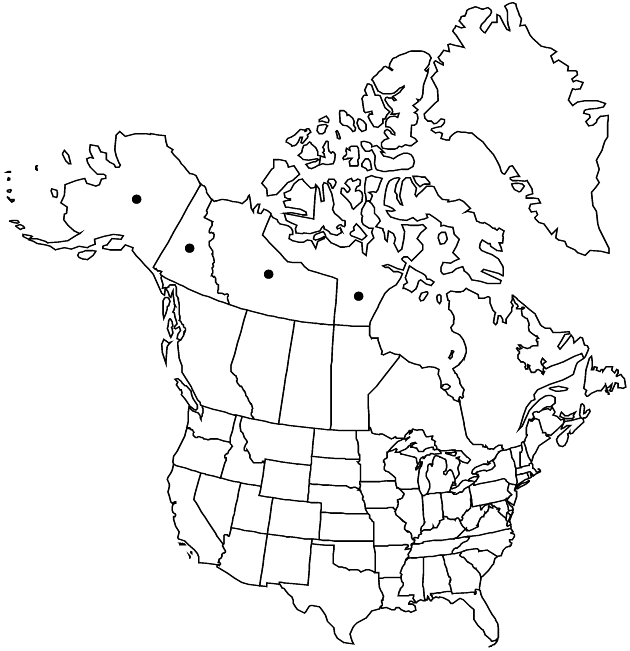Packera hyperborealis
Bot. Not. 128: 520. 1976.
Perennials, 6–20+ cm; fibrous-rooted or rhizomatous (rhizomes horizontal to suberect, stout). Stems usually 1, sometimes multiple, bases and leaf-axils tomentose, otherwise glabrous. Basal leaves (and proximal cauline) petiolate; blades oblanceolate to obovate or lyrate (pinnately lobed to pinnatifid, terminal lobes larger than laterals), 10–30+ × 10–20+ mm, bases tapering, ultimate margins ± crenate to serrate. Cauline leaves gradually to abruptly reduced (sessile; pinnatisect or entire). Heads 1–2 (–5+) in cymiform arrays. Peduncles bracteate (bractlets purple-tinged), glabrous or glabrate. Calyculi 0 or inconspicuous (bractlets purple-tinged). Phyllaries 13, green (sometimes purple-tinged distally), 6–8 mm, glabrous. Ray-florets 0 (rarely) or 10–12; corolla laminae 8–10 mm. Disc-florets 45–60+; corolla-tubes 3.5–4 mm, limbs 3–3.5 mm. Cypselae 1.5–2.5 mm, hirtellous on ribs; pappi 6–7 mm. 2n = 46.
Phenology: Flowering mid Jun–early Aug.
Habitat: Open, dry, rocky or sandy areas, sometimes in fertile soils overlaying limestone
Elevation: 0–900 m
Distribution

N.W.T., Nunavut, Yukon, Alaska.
Discussion
Packera hyperborealis is known only from lowland tundra from Alaska to the Mackenzie River and as far south as the northern end of the Franklin Mountains. It has also been collected as far north as Banks Island.
Selected References
None.